
Unsolicited book recommendations are, generally speaking, worthless. Most of the stuff you’re “supposed” to read comes from articles that are stuffed with affiliate links, videos from people who are paid off, and book clubs you got pressured into joining.
That’s not to say you should take my list for gospel. But I guarantee if you pick any of these up, you’ll be shocked, moved, or at the very least, entertained.
A shameless plug before we dive in—Belt Magazine named my book, A Bar in Toledo: The Untold Story of a Mafia Front Man and a Grammy-Winning Song, one of their best reads of 2023. If you’re into the mob or music history, you’ll dig it.
Anyway, if you only read a few books this year, you can’t go wrong with these five.
1. Bright Shiny Morning by James Frey
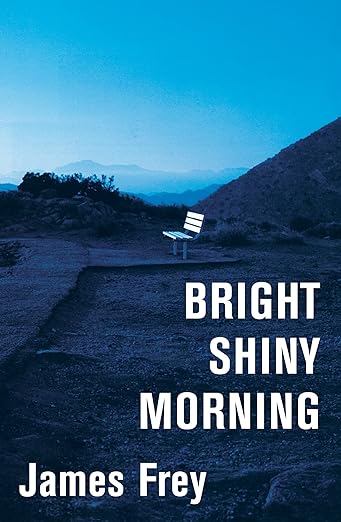 I wanted to read a book about Los Angeles after I moved here to make sense of the city, or at least attempt to. A lot of stories about LA are fairy tales—this one is the opposite.
I wanted to read a book about Los Angeles after I moved here to make sense of the city, or at least attempt to. A lot of stories about LA are fairy tales—this one is the opposite.
Bright Shiny Morning is a brutally honest portrait of chasing (and sometimes realizing) dreams in a merciless, moral wasteland. In four parallel stories, the book follows a homeless alcoholic, a closeted actor, a disgruntled maid, and a young runaway couple from Ohio—all of whom are clawing their way through a different stratum of LA.
Critics slammed this book when it came out in 2008 because it broke a lot of rules—intentional grammar/punctuation errors, jarring interstitials—but that’s what makes it memorable…and why it’s still in print after 15 years.
Hillary Frey (no relation to James) at the Observer put it better than I could: “[Frey] leads you into the hills high above Hollywood, shows you the most spectacular view of the hideousness that is Los Angeles, and then abandons you to make the only choice you can: to jump.”
2. The Art Thief: A True Story of Love, Crime, and a Dangerous Obsession by Michael Finkel
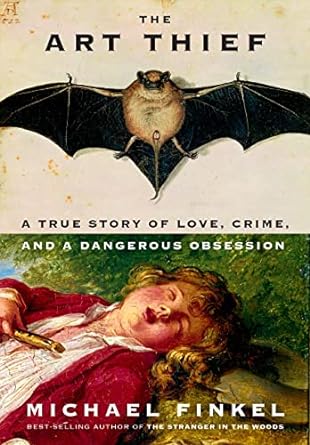
A 23-year-old dude living in his mom’s attic decides to steal $2+ billion worth of fine art from museums across Europe with nothing but a Swiss Army Knife—what could possibly go wrong?
Stéphane Brietwieser pulled off more than 300 heists before shit finally hit the fan. But unlike most art thieves, he had no intention of flipping his loot and getting rich. He was just addicted to the rush of stealing and the pursuit of beauty.
Michael Finkel got a lot of praise for his addictive storytelling in this book—rightly so. But I think he deserves just as much credit for examining the psychology and inevitable consequences of letting your obsessions go unchecked.
3. New Millenium Boyz by Alex Kazemi
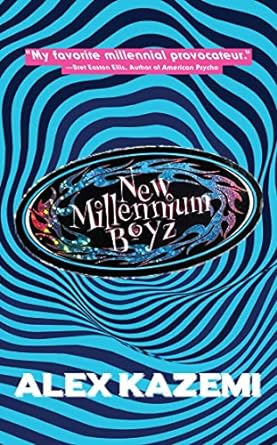
Take a Y2K coming-of-age story, add blackmail, Satan worshipers, and a bunch of drugs, and you get New Millenium Boyz. The main character, Brad, is trudging through his senior year of high school when he meets two transfer students who drag him down a sick, twisted path that pushes him to his darkest impulses—and it’s all being videotaped.
This book is deranged, raunchy, and full of dialogue you’d be mortified to read aloud. But more importantly, it’s a reflection on growing up alienated and confused in a post-Columbine world, which few people are gutsy enough to recount as honestly as Kazemi did here.
4. Bullshit Jobs: A Theory by David Graeber
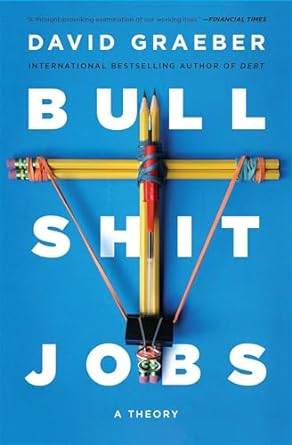
A decade before AI scared companies into cutting the fat, David Graeber’s essay about bullshit jobs went viral, forcing millions of people to wonder if their work was pointless. By popular demand, he expanded his essay into this book.
Graeber argues that more than half of modern jobs are bullshit, meaning they don’t add any direct value and could be eliminated without causing a blip on the radar.
I went into this book expecting Graeber to make fun of box tickers and paper pushers, which anybody can do. But I quickly realized he’s more concerned about the consequences of bullshit jobs. Getting paid to do (almost) nothing might sound sweet; Graeber thinks it’s dehumanizing.
It sucks that Graeber died in 2020. He’s one of the only people whose opinion about “the future of work” I’d actually listen to.
5. Eileen by Ottessa Moshfegh
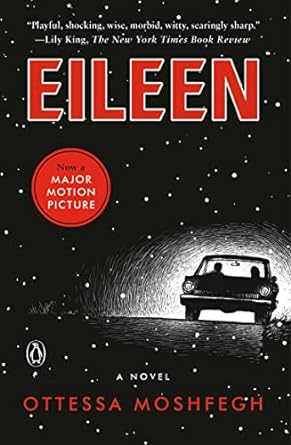
Perverted, creepy, darkly funny—all the qualities that got me hooked on Moshfegh are on full display in Eileen, which I think is her best book, even though it was her first. Sure, it’s a crime/mystery novel. But not the kind you pick up at the airport on the way to Florida. Her writing is somehow disturbing, charming, and addictive all at the same time. Protect this woman at all costs.
Honorable Mention
The Men Can’t Be Saved by Ben Purkert
It’s a cliche compliment, but this is a book I wish I could’ve written. Purkert figured out how to explore early-20s angst, corporate bullshit, and dysfunctional romance—all without making you cringe. Much of the plot revolves around the advertising industry (it’s clear Purkert spent more than enough time there), but it’s less about work and more about how work shapes your soul.
The Final Testament of the Holy Bible by James Frey
This is probably the most unique book I’ve read, in terms of structure and style: a fictional depiction of what might happen if the Messiah returned in the 21st century, written in the form of Biblical scriptures. The plot is aggressively sacrilegious and won’t win any fans at church book clubs. But once you get past the initial shock, it’s impossible to ignore the fact that Frey wrote this to explore the religious impulse, not bash it.
Close to Home by Michael Magee
Sean, the book’s main character, did everything right for the first 22 years of his life. But after punching a stranger in the face, he’s forced to grapple with the trauma and secrets he buried as a kid. Set in working-class Northern Ireland, Magee dissects what it’s like to navigate the limbo period between your past and future.
That’s it for now. To stay up to date on my latest articles and projects, sign up for my newsletter. There are readers from seven countries and everyone is welcome to join.